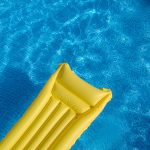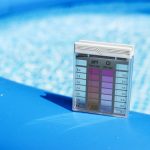Certified Pool Operator Training – DE Filter Variations and Alternatives
In the two previous parts of this series on DE Filters, we covered the vacuum and pressure DE filter systems used to sanitize swimming pools. However, there are alternative materials that can be used as a substitute for these DE filters. Understanding every type of DE filter is an essential part of Certified Pool Operator training.
Wood Fiber
It may come as a surprise that there is a DE filter substitute material that is based on wood pulp fiber. These materials are biodegradable and can be flushed to waste without the need for separation tanks, making them quite efficient. If you plan on using this alternative, check with your filter’s manufacturer instructions to make sure it is compatible. Wood fiber materials are also used for coating cartridge filters, often during spa operations. To make oil removal easier use around 1 ounce every 25ft². Keep in mind that all materials used for filtration must have NSFI certification and the approval of the manufacturer.
Regenerative Filters
The regenerative filter utilizes DE or a synthetic substitute during their usage. The regeneration process is a mechanical way of dislodging DE and dirt to allow for more efficient use of the DE. The difference between regenerative filters and high-rate sand filters is that sand filters use the entire sand bed for filtration while a regenerative filter has water flowing through multiple outlet tubes covered in fabric, coated with filter media. This increases the filter’s surface area, meaning the regenerative filters require a smaller footprint for installation than the sand filters.
The regeneration process that occurs with regeneration filters is referred to as bumping. The process agitates the media and trapped dirt off the leaves that it is attached to. Regeneration redistributes the media, which extends its lifespan. Another benefit of the regeneration process is that less water is sent to waste, making it more efficient and conserving more water. Manufacturers claim that regenerative filters can save as much as 95% of wastewater associated with sand filter backwashing.
Regenerative Vs High-Rate Sand Filters
The main consideration for comparing these two filters is their price and bottom-line costs. Certified Pool Operator training must include financial factors to effectively run a swimming facility. Regenerative systems are often more expensive as an upfront investment but can save you money over time. Regenerative filters also require much less space than sand filters, have lower installation costs and the filter media is way less expensive. Because of regenerative filters’ ability to conserve water, Certified Pool Operators ® can also conserve chemicals. Over time this conservation will offset the price differential on the two filters.
Another major consideration is the differences in daily operation and maintenance. Sand filters require weekly backwashing and the sand media must be replaced every 10 years. Regenerative systems, on the other hand, require daily bumping of the filters, but the process is automated. Backwashing is less frequent and only needs to be done every 4 to 8 weeks.
Learn More With Certified Pool Operator Training
To learn more about the swimming pool filtration in its many forms, go to the experts at Pool Operation Management. The CPO® certification class is a great start to becoming a pool expert. Our award-winning Certified Pool Operator training courses show you how to properly operate a swimming pool or spa facility. Our two-day courses offer a wealth of information and training in everything from pool chemicals to energy conservation to risk and liability. We also offer Certified Pool Operator training for New Jersey Official Pool inspectors as well as certified pool director training for facilities with pools over 2,000 square feet. For the very best in pool operation, contact us today.





